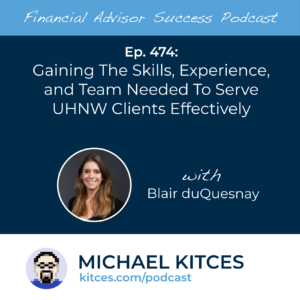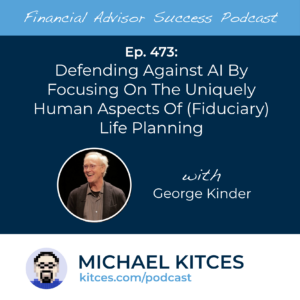When it comes to the decision of where to live in retirement, some clients might assume they will remain in their current home for the duration of their lifetime, while others might quickly gravitate toward a senior-specific living arrangement (e.g., a 55+ living community or a Continuing Care Retirement Community [CCRC]). However, given that the decision of where to live in one's later years also has implications for how they will receive care as they age, this choice can be more complex than it appears on the surface, creating an opportunity for financial advisors to support clients in thinking through the full implications (both financial and lifestyle) of this issue.
In this guest post, Kathleen Rehl – a former financial advisor with significant professional and personal experience in navigating later-life transitions – examines the housing choice issue by shifting the advisor-client conversation from "Which community should we choose?" to the more fundamental question of how housing and care will be delivered, coordinated, and paid for during a client's 70s, 80s, and beyond.
Given the number of later-life housing and care options available, financial advisors can help clients analyze their choices (and the tradeoffs involved) on a variety of factors, both qualitative (e.g., housing stability, care coordination, and social and community infrastructure) and financial (e.g., upfront costs and ongoing cost predictability). For example, a 55+ rental community requires minimal upfront cost but requires the client (or family members) to manage their care coordination, while a CCRC itself handles care transitions, but often at a higher upfront cost.
At a more fundamental level, financial advisors can offer value for their clients by starting this conversation in the first place, at an age (perhaps in the client's late 60s or early 70s) when clients are typically healthier, more financially flexible, and more likely to meet admission criteria than they would be as they approach their 80s or 90s. Given the potential sensitivity of this topic, advisors can help clients prepare for the discussion by introducing the topic gently in a pre-meeting agenda and using a short discovery checklist to surface client values, fears, family dynamics, and tolerance for uncertainty. In addition, by coming to the meeting with data on the estimated costs of local options, advisors can better lay out the financial tradeoffs involved with different later-life housing and care options.
Ultimately, the key point is that because clients might not have thought through the full implications of where they will live and how it affects how they will receive care (and how housing transition decisions will be made as their care needs evolve), financial advisors can play an important role in helping clients think through both the lifestyle and financial implications of different options for their later years. Which could allow clients to maintain their independence, reduce future stress, and make intentional decisions before health issues restrict their options.




